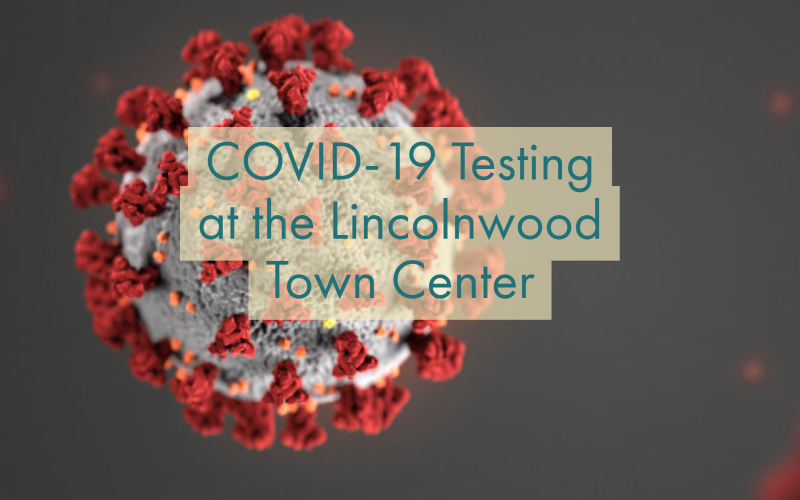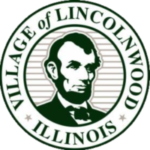Coronovirus News and Information

Updated on 1.15.2021
COVID-19 Vaccination Resources and Updates
The Cook County Department of Public Health (CCDPH) is responsible for coordinating the COVID-19 vaccination roll-out in our area. CCDPH will follow guidelines outlined by the Center for Disease Control (CDC) and Advisory Committee on Immunization Practices (ACIP) to vaccinate over 2.5 million residents in Cook County as quickly and efficiently as possible. The County’s overall strategy includes working with partners to ensure equitable access to the COVID-19 vaccine. The Village continues to be in communication with County officials about the vaccination roll-out and will continue to update the community with new information. Below are several resources for more information on the vaccination.
The CCDPH is now inviting people to sign up to receive information about the vaccine distribution plan. This form does not register individuals to receive the vaccination, only to receive regular updates about the availability and distribution of the vaccination.
Per the CCDPH, the COVID-19 will be rolled out in phases based on national and state guidance. There will be a very limited supply in the beginning and certain groups will be prioritized for eligibility to receive the vaccine. Currently, we are in Phase 1 of the distribution plan with vaccinations being administered to Group 1a. This group includes health care workers, residents, and staff at long-term care facilities and other health care workers including EMS personnel. We will share guidance from CCDPH on additional groups that are eligible to receive the vaccine as more information becomes available.
The IDPH website receives vaccination reports from providers. To see the current vaccination data and find out more information, please click here. As the Coronavirus is now a global pandemic, Lincolnwood personnel are in communication with the Cook County Health Department and the Illinois Department of Public Health, in addition to area partner agencies, to prepare for the possibility of our area becoming affected. The Village is monitoring developments and working in coordination to share resources.
here are steps individuals can take to help minimize the risk of COVID-19 spread.
- Wash your hands frequently
- Avoid touching your face (eyes, nose, mouth) with unwashed hands
- Stay at home if you feel ill and contact a doctor
- Wear a face covering when visiting essential businesses, and when social distancing is not possible.
- Cover coughs and sneezes
- Clean frequently-touched surfaces and objects regularly

Latest News from the Village of Lincolnwood:
- January 5, 2021: Lincolnwood Develops Vaccination Update Page
- December 4, 2020: A Letter from Mayor Bass to County and State Leaders regarding COVID-19 Regulations
- November 19, 2020: Supplemental Order Encouraging the use of Face Coverings while in Public Parks
- November 10, 2020: COVID-19 Testing Site at the Lincolnwood Town Center
- October 26, 2020: State Public Health Officials Announce COVID-19 Resurgence Mitigations to Take Effect on October 28
- October 9, 2020: Cook County COVID-19 Mortgage Assistance Program
- August 31, 2020: New Guidelines for Face-Coverings at Restaurants
- August 26, 2020: Emergency Mortgage Assistance Program
- August 11, 2020: Emergency Rental Assistance Program
- June 29, 2020: Lincolnwood’s Playgrounds are Open for Play
- June 26, 2020: Grand Re-Opening of the Lincolnwood Business Community
- June 24, 2020: Business Guidelines for Phase 4
- June 19, 2020: Temporary Outdoor Advertising Guidelines
- June 17, 2020: Declaration of Emergency Extended
- June 15, 2020: Determination Regarding In-Person Village Board Meetings
- June 12, 2020: Village Hall Reopening Schedule
- June 5, 2020: Extension of Billing and Licensing Periods
- June 4, 2020: Declaration of Emergency Extended
- June 3, 2020: Parks and Recreation Department COVID-19 Update
- May 29, 2020: Approval of Temporary Outdoor Dining Areas
- May 21, 2020: Declaration of Emergency Extended
- May 15, 2020: Postponement and Cancellation of Upcoming Community Events due to the COVID-19 Pandemic
- May 5, 2020: Face Coverings Required
- May 4, 2020: Guidance on the Use of Masks or Face Coverings
- April 24, 2020: The Village of Lincolnwood Issues Orders Regarding Compliance with the Governor’s Stay at Home Order and the Requiring of Face Coverings
- April 22,2020: Declaration of Emergency Extended
- April 21, 2020: The Lincolnwood Way, Know your Neighbor
- April 15, 2020: Mayor Bass Issues Recommendation on the Usage of Face Coverings for Residents and Essential Businesses
- April 8, 2020: Village COVID-19 FAQs
- April 8, 2020: Declaration of Emergency Extended
- April 7, 2020: Maintain Social Distancing on our Trails
- April 3, 2020: Cook County Department of Public Health Data
- March 30, 2020: Business Resources During COVID-19
- March 29, 2020: Message from Mayor Barry Bass Regarding COVID-19
- March 26, 2020: COVID-19 Executive Order No.5 and Guidance for Food Service Operations
- March 20, 2020: Governor Issues Order to Stay Home
- March 20, 2020: Support your Local Restaurants
- March 19, 2020: Declaration of Emergency Issued
- March 19, 2020: Playground Closures Due to COVID-19
- March 18, 2020: The Lincolnwood Way, Be a Good Neighbor
- March 17, 2020: Lincolnwood Police Announce Temporary Change in Service Protocols Due to COVID-19
- March 13, 2020: COVID -19 Preparations and Plans. This press release contains information regarding municipal closures, online services, cancellation of public meetings, and building and permitting adjustments.
- March 12, 2020: Parks and Recreation Closures and Cancellations
- March 3, 2020: Coronavirus: Precautionary Measures

Frequently Asked Questions
Coronavirus disease 2019 (COVID-19) is a respiratory illness that can spread from person to person. The virus that causes COVID-19 is a novel coronavirus named severe acute respiratory syndrome coronavirus 2 (SARS-CoV-2). It was first identified during an investigation into an outbreak in Wuhan, China. Coronaviruses are a large family of viruses that are common in many different species of animals, including camels, cattle, cats, and bats. Rarely, animal coronaviruses can infect people and then spread between people such as with MERS-CoV, SARS-CoV, and now with SARS-CoV-2.
Chinese health officials have reported tens of thousands of cases of COVID-19, with the virus reportedly spreading from person-to-person in parts of China. COVID-19 illnesses, most of them associated with travel from Wuhan, also are being reported in a growing number of international locations, including the U.S. Person-to-person spread of COVID-19 also has been seen among close contacts of returned travelers from Wuhan. The latest situation summary updates, including the number of cases identified in the U.S., are available on CDC’s web page Coronavirus Disease 2019 (COVID-19).
Patients who get sick with COVID-19 develop mild to severe respiratory illness with symptoms of:
- Fever or chills
- Cough
- Shortness of breath or difficulty breathing
- Fatigue
- Muscle or body aches
- Headache
- New loss of taste or smell
- Sore throat
- Congestion or runny nose
- Nausea or vomiting
- Diarrhea
Many common illnesses can cause these same symptoms. COVID-19 can only be diagnosed at a public health laboratory. Individuals who have these symptoms and have traveled to China or have had close contact with someone with COVID-19 should be seen by a doctor or medical professional.
CDC believes at this time that symptoms of COVID-19 may appear in as few as two days or as long as 14 days after exposure.
Although the virus that causes COVID-19 probably emerged from an animal source, it is thought to spread mainly from person-to-person via respiratory droplets produced when an infected person coughs or sneezes. People are thought to be most contagious when they are most symptomatic (the sickest). How easily a virus spreads from person-to-person can vary. Some viruses are highly contagious (like measles), while other viruses are less so. Another factor is whether the spread is sustained. The virus that causes COVID-19 seems to be spreading easily and sustainably in Hubei province and other parts of China. In the U.S., spread from person-to-person has occurred only among a few close contacts and has not spread any further to date.
There is no specific medicine to treat COVID-19 infection at this time, though studies are underway. People sick with COVID-19 should receive supportive care from a health care professional. Supportive care means care to help relieve symptoms; for example, medicine to bring down fevers, or oxygen if a patient’s oxygen level is low.
Diagnosis occurs through laboratory testing of respiratory specimens and serum (blood). Some coronavirus strains cause the common cold and patients tested by their health care provider may test positive for these types.
CDC continues to study the spread and effects of the novel coronavirus across the United States. We now know from recent studies that a significant portion of individuals with coronavirus lack symptoms (“asymptomatic”) and that even those who eventually develop symptoms (“pre-symptomatic”) can transmit the virus to others before showing symptoms. This means that the virus can spread between people interacting in close proximity—for example, speaking, coughing, or sneezing—even if those people are not exhibiting symptoms. In light of this new evidence, CDC recommends wearing cloth face coverings in public settings where other social distancing measures are difficult to maintain (e.g., grocery stores and pharmacies) especially in areas of significant community-based transmission.
CDC recommends avoiding travel to China. Chinese officials have closed transport within and out of Wuhan and other areas in Hubei Province, including buses, subways, trains, and the international airport. Additional restrictions and cancellations of events may occur. For travel advice for other countries, please visit that country’s Destination Page or CDC’s Travel Health Notice website.
Information for Businesses & Employers
The Village has been updating a web-page with business resources. This page has information about local, state, and federal resources and can be found here.
Employers play a key role in promoting healthy communities. The CDC recommends that employers encourage sick employees to stay home, especially if they have had a fever of 100.4°F or higher. Employees should be symptom-free for at least 24 hours before returning to work. For additional best practices, the CDC offers guidance for an informed response from employers. The Chicago Department of Public Health (CDPH) has prepared a useful fact sheet for businesses and employers.
Special guidance for healthcare professionals is also available.
The information on this page is adapted from the Centers for Disease Control and Prevention, Cook County Department of Health, and the Illinois Department of Health. Please contact your healthcare provider with questions about symptoms of COVID-19 or if you require medical advice for yourself or your family.
